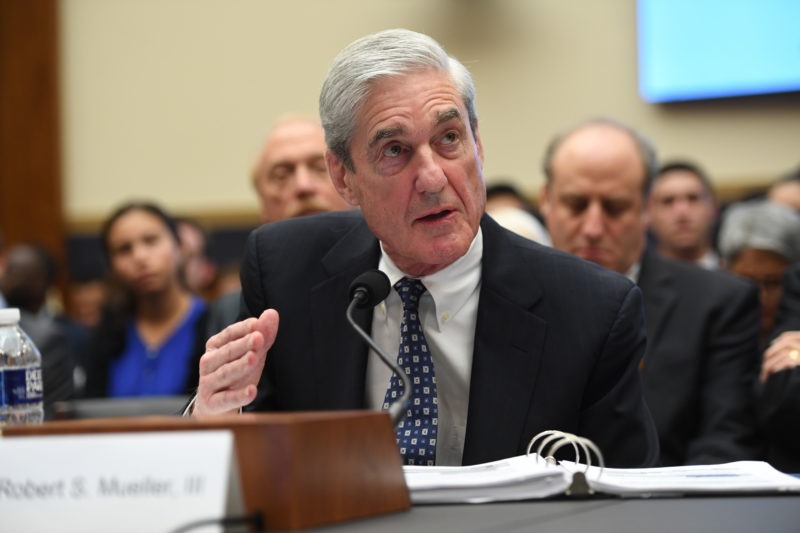Robert Mueller, from shadows to the spotlight
Former Special Prosecutor Robert Mueller testifies before Congress (SAUL LOEB)
Washington (AFP) – For two years, Robert Mueller operated quietly behind the scenes, a sphinxlike figure carrying out a politically explosive investigation into the President of the United States.
On Wednesday, the former special counsel emerged from the shadows, testifying to Congress about his probe into whether Donald Trump’s presidential campaign conspired with Russia to get him elected.
For many Americans, the nationally televised hearing was the first close look at the patrician, grey-haired former FBI director, whom Trump has spent the past two years denouncing as the leader of a “witch hunt.”
What many saw was a cautious career prosecutor who was forced to testify under duress and who deflected questions from both Democrats and Republicans by referring repeatedly to his voluminous report.
They also saw a septugenarian who strained to hear rapid fire questions from lawmakers and who was evasive at times and defensive at others.
“Could you repeat the question?” the 74-year-old Mueller asked numerous times during a tense three hour and 40 minutes before the House Judiciary Committee.
Mueller said his report did not exonerate Trump but he mostly deflected questions from lawmakers seeking to score political points for their sides.
That was in keeping with the career of a public servant who has spent four decades serving both Democratic and Republican presidents.
Before taking on the politically-sensitive Russia investigation, the former marine, who was both wounded and decorated for heroism in Vietnam, enjoyed a sterling reputation in Washington.
Mueller is a “consummate professional and a straight shooter,” current FBI chief Christopher Wray, a Trump appointee, said Tuesday.
– Led FBI after 9/11 –
As a young prosecutor in San Francisco and Boston, Mueller took on cases involving grisly murders, organized crime, fraud by powerful banks and terror attacks, winning some, losing some, but rarely drawing serious criticism for his work.
He was named director of the Federal Bureau of Investigation just days before the September 11, 2001 Al-Qaeda attacks on New York and Washington, which plunged the bureau into an entirely new mission to protect the country from terror plots.
Mueller led the FBI for the next 12 years, during which time he built up the bureau’s counterterror mission but had some notorious problems, including a botched anthrax investigation and a poorly functioning intelligence unit.
He gained a reputation of being an exacting and tough taskmaster, and despite his early Republican political alignment, someone who was appreciated by politicians of both political parties.
After retiring in 2013, he joined a private Washington law practice where he handled official arbiter missions.
These included an external investigation of the NFL’s mishandling of assault allegations against a star player and reviewing security controls at intelligence contractor Booz Allen Hamilton after several employees stole confidential national security information.
Trump’s firing of Mueller’s successor at the FBI, James Comey, in May 2017 resulted in Mueller being recalled to public service to lead the Russia meddling investigation.
Over 22 months, his investigators issued charges against 34 individuals, including six Trump associates, and three companies.
But no one saw or heard from Mueller himself during the probe.
Testifying before the House Judiciary and Intelligence Committees gave Mueller his first opportunity to say what he really thinks.
Mueller rejected Trump’s characterization of his probe as a “witch hunt,” but he largely stuck to the script as written in his 448-page report.
Disclaimer: Validity of the above story is for 7 Days from original date of publishing. Source: AFP.


